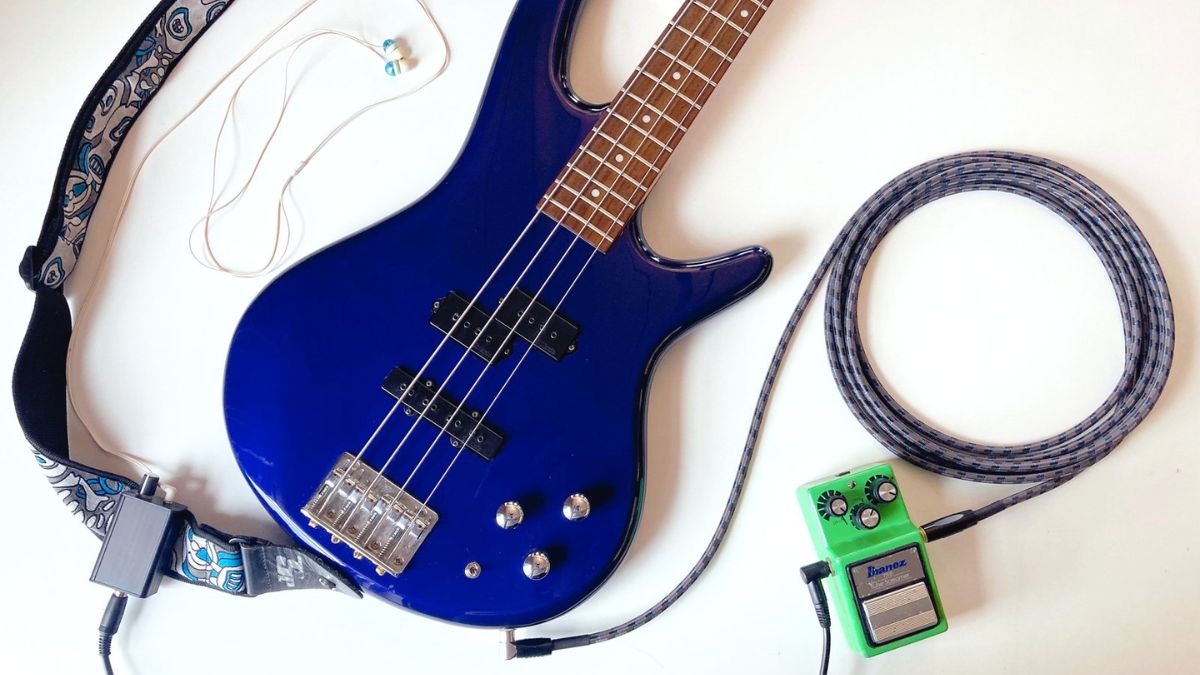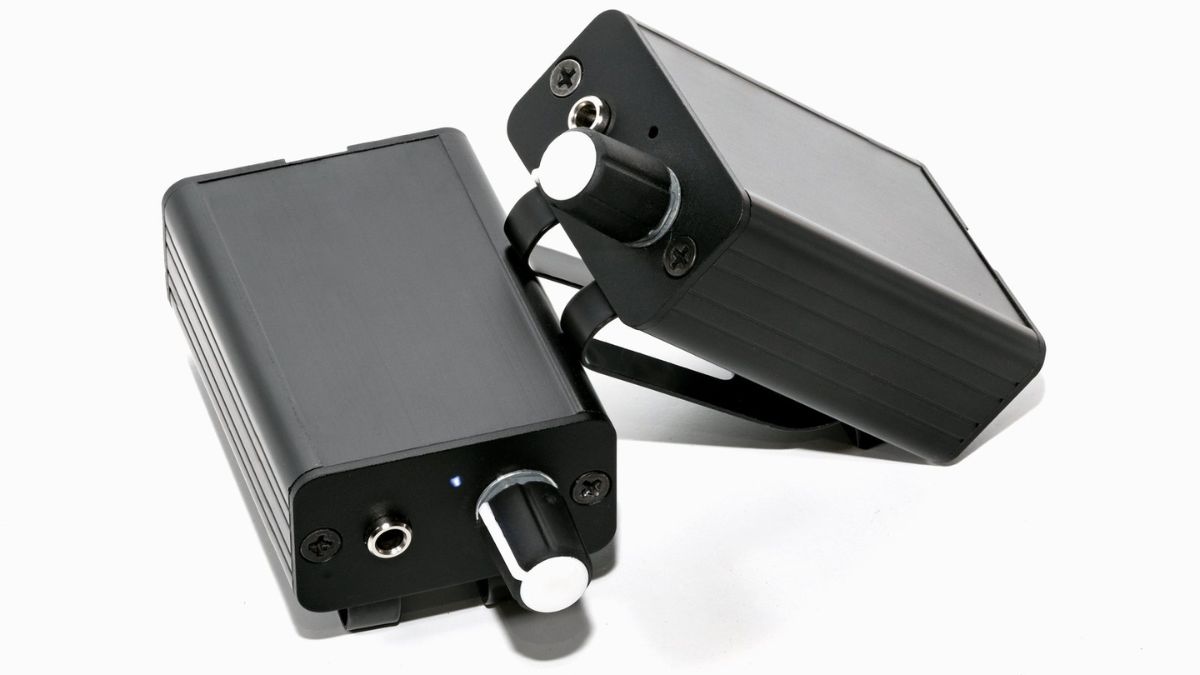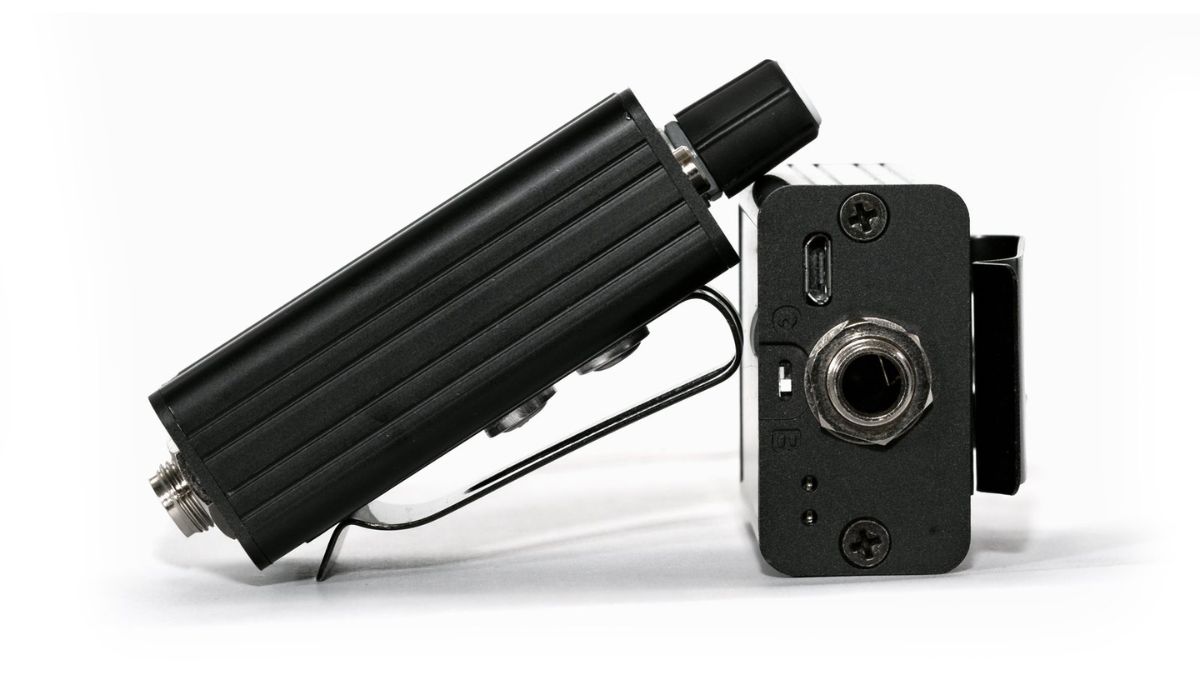“A solution to quiet practice with pedals that you’ll have a hard time wearing out”: The Porter is a headphone amp designed to work with your favorite guitar and bass pedals – and its creators reckon it’s practically invincible
Neighborhood Circuits has built the tiny, pedal-friendly headphone amp to last, and offers something different from the all-in-one solutions of the market

All the latest guitar news, interviews, lessons, reviews, deals and more, direct to your inbox!
You are now subscribed
Your newsletter sign-up was successful
Typically, headphone amps look to be all-in-one solutions for compact and silent practice, but Porter instead wants to partner up with your favorite guitar and bass pedals.
Designed by Neighborhood Circuits, the Porter is tuned to deliver an amp-like response, so pedals will sound and respond as they would with an amp proper. That allows for a familiar playing experience with a much smaller footprint, without having to leave your pedalboard favorites behind.
What you see is what you get with the Porter. It’s designed to be distraction-free and an analog tool, with no apps for a streamlined, in-house experience. It's incredibly minimalist design echoes this: simplicity is key.
The amp is tiny, too. It comes with a clip to mount it to guitar straps, while a micro-USB port doubles as both a charging port, and a way of connecting an external device for jamming along to music. Notably, that isn't the modern standard USB-connection, but it's a minor drawback.
A viable option for guitarists and bass players alike, switching to guitar mode gives a tighter response, while the low-end is boosted in bass mode.
Headphone amps, by their very minuscule nature, can prove to be flimsy devices that can’t take a beating. Porter vies to be different.
“We want you to buy Porter once and use it for life,” say its creators, with the device reinforced with a tough aluminum casing, riveted steel belt clip, and bolstered by a replaceable and rechargeable battery.
All the latest guitar news, interviews, lessons, reviews, deals and more, direct to your inbox!
“You’ll have a hard time wearing Porter out,” Neighborhood Circuits continues. If total destruction is somehow managed, the full design documentation is also provided (via GitHub) so the Porter can be repaired or customized.

The Porter features a 1/4” input jack and a 1/8” headphone jack, with the only controls a Volume dial, and the guitar/bass switch.
It offers 500 kohms of input impedance in guitar mode, and one Mohm in bass mode, and promises 15 hours of playtime on a two-hour charge.
Neighborhood Circuits is a one-man startup based in Cambridge, MA. Having focused on local electronic design consulting services, it is now branching out into audio product design.
Founder Gavin Lund says the Porter is “a solution to a problem that I've faced myself – as a bass player with a number of custom and home-made pedals, I'd really like to practice quietly with them, but existing products don't make that easy or even possible.”

The mini gizmo will launch via a Crowd Supply crowdfunding campaign. Interested players can subscribe for email updates ahead of the launch.
There is no mention of how much the Porter will cost at this stage. Naturally, a device like this will rely heavily on its (hopefully) low price to appeal to a wide range of players, especially in the face of plenty of competition.
As such we'd expect it to nestle closer to a price point occupied by Harley Benton's DNAfx GiT ($62) and Vox's AmPlug 3 ($49.99), rather than the $399.99 Boss wants for its rather boutique amp-in-headphones Waza Air solution.
Head to Crowd Supply to learn more.
A freelance writer with a penchant for music that gets weird, Phil is a regular contributor to Prog, Guitar World, and Total Guitar magazines and is especially keen on shining a light on unknown artists. Outside of the journalism realm, you can find him writing angular riffs in progressive metal band, Prognosis, in which he slings an 8-string Strandberg Boden Original, churning that low string through a variety of tunings. He's also a published author and is currently penning his debut novel which chucks fantasy, mythology and humanity into a great big melting pot.

